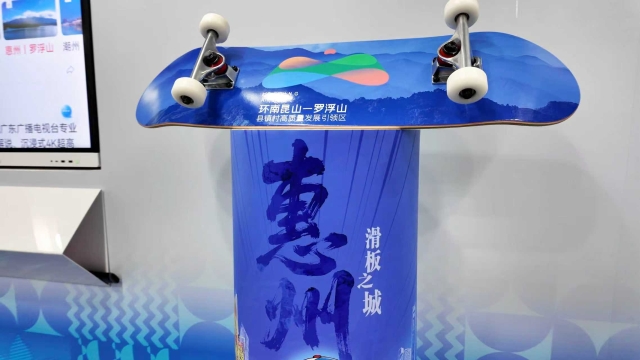As China's 15th National Games continue across Guangdong, cities in the province are using the event as a platform to highlight the sports that have shaped their local culture and industry.
At a press conference held at the Main Press Centre in Guangzhou on November 16, representatives from Meizhou, Foshan, Shaoguan, Heyuan, Huizhou, and Zhongshan outlined how their signature sports have become part of their city identities and, in some cases, tools for industrial growth and global engagement.
Meizhou: Where Chinese Football began and talent thrives
Meizhou sits in Guangdong's hilly northeast, far from the glittering skylines of Guangzhou and Shenzhen. Yet it is here that modern Chinese football first took root.
The city takes pride in being the hometown of Lee Wai Tong, the legendary striker who led China to the 1936 Berlin Olympics and helped lay the foundations for the early development of Chinese football.
Nearly a century later, the passion Lee helped ignite still burns. Every year, there are more than 600 football matches taking place in the city, involving 3,000 registered players and drawing tens of thousands of spectators. "Football is part of Meizhou's identity," Deputy Mayor Dai Wei said at the press conference.
That culture continues to feed China's football talent pipeline. Since 2021, Meizhou has sent 57 young players to national elite training camps, with 17 making it into the national youth teams. In January, the city went a step further by introducing China's first local regulation on youth football development, underscoring its leading role in the country's football landscape.
Foshan and Zhongshan: Sports find a global stage
In Foshan, a water-rich city near Guangzhou, dragon boat racing has long been part of the local fabric. The saying "Better to smash the boat than slow it down" captures the drive for excellence that has defined Foshan's people for generations.
Today, that spirit is traveling far beyond the region's canals. Foshan's dragon boats have been showcased in Kenya, while its cultural products have appeared at the Louvre in Paris and its promotional videos in Times Square, New York.
Zhongshan, known as China's "baseball city," tells a parallel story of heritage meeting the world. It is the hometown of Liang Fuchu, celebrated as the father of Chinese baseball, who in 1905 formed a Chinese team in Yokohama, Japan, and twice won the city championship.
Today, the city is building on that legacy. From hosting international youth tournaments to developing world-class baseball facilities, Zhongshan is using the sport as a bridge to global partnerships, strengthening its international presence and fostering cultural exchange.
Shaoguan and Heyuan: Nature as an arena
Shaoguan, a city surrounded by three rivers and misty hills, has quietly become one of China's rowing strongholds. Its natural waterways offer year-round training conditions and have produced champions. Among them is Qiu Xiuping, who delivered China's first gold at the 2023 Hangzhou Asian Games and recently added a National Games silver for Guangdong.
The city is now building on this advantage, weaving rowing routes into the spectacular red cliffs of Danxia Mountain and creating a hybrid zone where sport, tourism, and ecology meet.
Heyuan has taken a similar path. Branded as Guangdong's "city of hiking", it has built an extensive trail system around the vast, emerald Wanlü Lake.
"Hiking isn't about winning. It's more about the journey and the experience," said Deputy Mayor Huang Zirui. "That's exactly what people from nearby cities are looking for on weekends." More than 500,000 people now visit Heyuan for hiking each year, turning the outdoor sport into a new engine of consumption, according to Huang.
Huizhou: From skateboarding to the skateboard industry
In Huizhou, skateboarding and manufacturing are coming together. It hosted the 15th National Games skateboarding events, where local athletes claimed three golds and a bronze.
Among them is 13-year-old Zheng Haohao, the youngest member of China's Paris 2024 Olympic delegation, who won bronze in the women's park event at the National Games. "Competing at home and winning a medal for my city was incredibly special," she told South.
Yet Huizhou's impact goes beyond its athletes. The city is a global hub for high-end skateboard manufacturing, producing nearly 40% of the world's premium boards. "The speed and energy of skateboarding mirror how Huizhou's manufacturing reaches the international stage," said Deputy Mayor Yu Jialiang.

Reporter | Chen Siyuan
Photo | Liang Zijian
Editor | Hu Nan, James Campion, Shen He
















